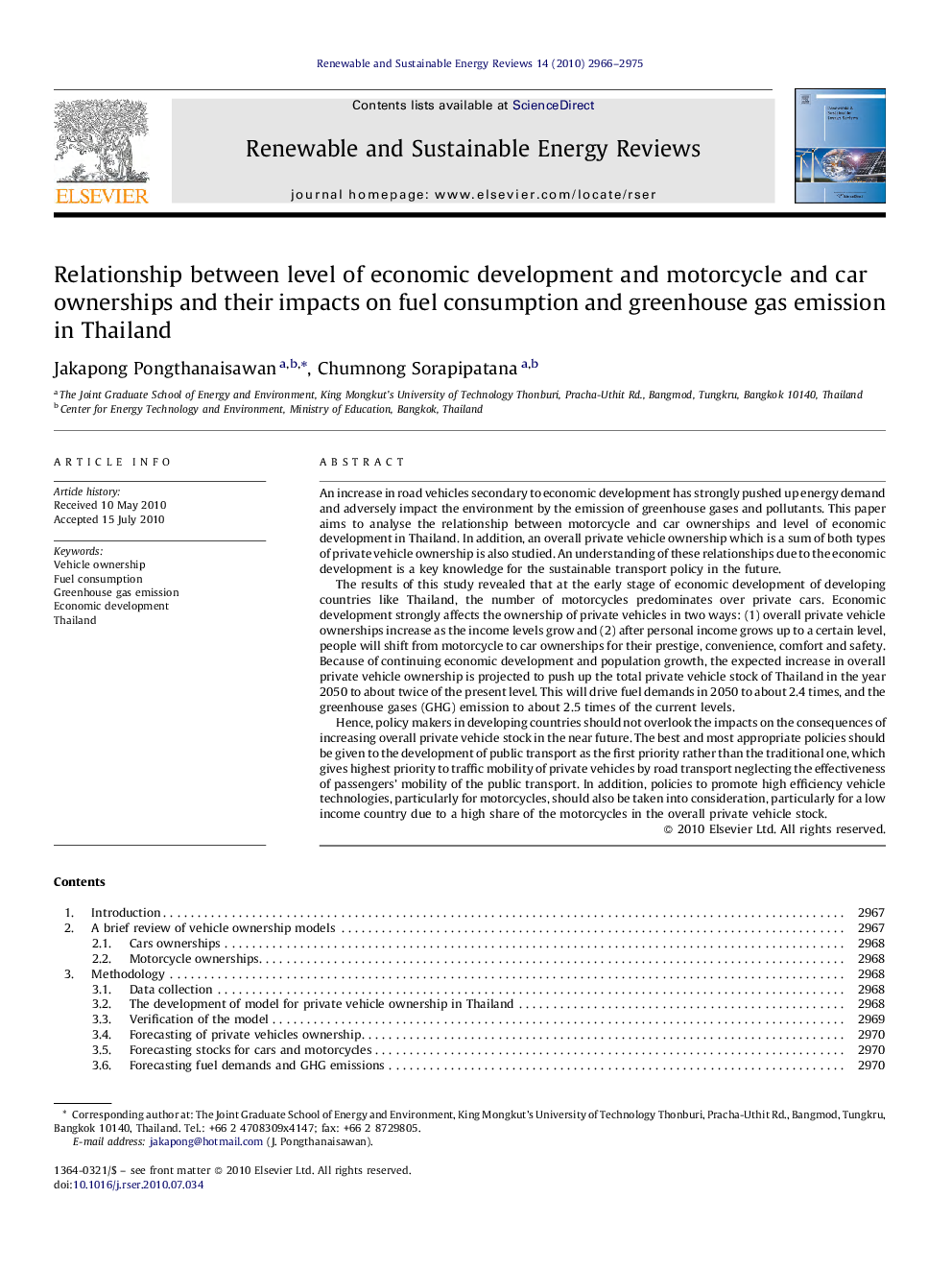| کد مقاله | کد نشریه | سال انتشار | مقاله انگلیسی | نسخه تمام متن |
|---|---|---|---|---|
| 1751691 | 1018421 | 2010 | 10 صفحه PDF | دانلود رایگان |

An increase in road vehicles secondary to economic development has strongly pushed up energy demand and adversely impact the environment by the emission of greenhouse gases and pollutants. This paper aims to analyse the relationship between motorcycle and car ownerships and level of economic development in Thailand. In addition, an overall private vehicle ownership which is a sum of both types of private vehicle ownership is also studied. An understanding of these relationships due to the economic development is a key knowledge for the sustainable transport policy in the future.The results of this study revealed that at the early stage of economic development of developing countries like Thailand, the number of motorcycles predominates over private cars. Economic development strongly affects the ownership of private vehicles in two ways: (1) overall private vehicle ownerships increase as the income levels grow and (2) after personal income grows up to a certain level, people will shift from motorcycle to car ownerships for their prestige, convenience, comfort and safety. Because of continuing economic development and population growth, the expected increase in overall private vehicle ownership is projected to push up the total private vehicle stock of Thailand in the year 2050 to about twice of the present level. This will drive fuel demands in 2050 to about 2.4 times, and the greenhouse gases (GHG) emission to about 2.5 times of the current levels.Hence, policy makers in developing countries should not overlook the impacts on the consequences of increasing overall private vehicle stock in the near future. The best and most appropriate policies should be given to the development of public transport as the first priority rather than the traditional one, which gives highest priority to traffic mobility of private vehicles by road transport neglecting the effectiveness of passengers’ mobility of the public transport. In addition, policies to promote high efficiency vehicle technologies, particularly for motorcycles, should also be taken into consideration, particularly for a low income country due to a high share of the motorcycles in the overall private vehicle stock.
Journal: Renewable and Sustainable Energy Reviews - Volume 14, Issue 9, December 2010, Pages 2966–2975